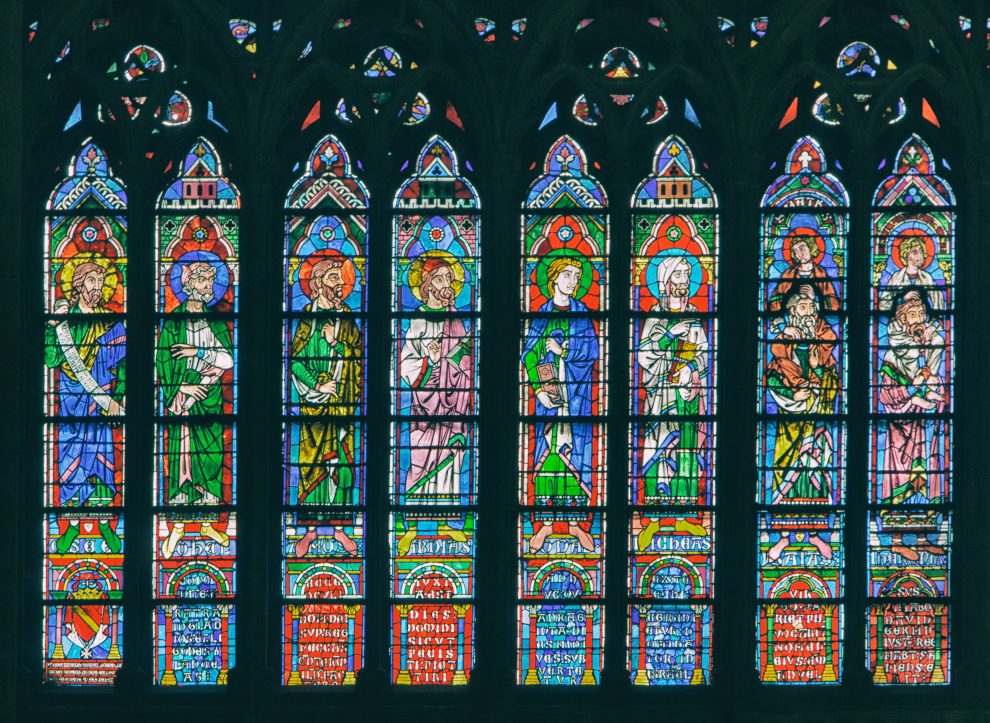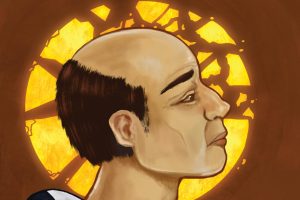I came to the stories of the saints in a rather unusual way—and one I don’t expect any of you to share: I wrote for a Catholic homily preparation resource, and part of that work involved saying something about the feast days of the saints in the liturgical calendar. To do that, I had to read up on them.
But my interest is more than professional. I always knew the saints were important, both as sources of inspiration and intercessors in prayer. I used to wonder, though, why some people became recognized saints. Were they chosen through some hidden process only God knew? How else to explain why some people seemed to have an almost superhuman capacity for self-sacrifice other than through some mysterious act of God?
That’s the first thing I learned from reading the stories of the saints: People like Dorothy Day and many other saintly figures were right when they said that everyone is called to be a saint. The lives of the saints call me and everyone to follow in their footsteps and show that the image and likeness of God is alive and well in the world today.
I have also seen the wonderful variety of the great cloud of witnesses the Letter to the Hebrews (12:1) speaks of, who have answered the call to love and serve God and one another since the beginning. There are founders of religious orders and those kicked out of them. Missionaries to distant lands and others who never left their hometown. The ambitious and the reluctant. Pray-ers and doers. Scholars and some who could barely read and write. Creators of great enterprises and those content to clean bathrooms and answer the door.
In this diversity I can find a place. Have I failed at something? So did St. Alphonsus Liguori—several times. Do I need an example to inspire me to greater service? Start with St. Paul, who said he had poured out his life like a libation, a sacrificial offering. Am I having trouble praying? Read St. John of the Cross or the letters of Mother Teresa to see that doubt is not an obstacle to faith. For whatever spiritual need I may have, there’s a saint who has been there.
Another reason I love knowing the stories of saints is because they show how holiness can be catching—how we lead one another to saintliness. For instance, the Jesuit Brother Alphonsus Rodriguez, the doorkeeper of a boys’ school on Majorca, Spain, was also the spiritual director of another lowly figure, St. Peter Claver (who, in my favorite quote from a saint, thought it was important to say “nothing, nothing, nothing”).
Finding out more about the saints also shows me that the real lives of the saints are not always reflected in the sanitized biographies we sometimes read of them. Behind almost every “holy card” version of a saint is a flesh-and-blood person who struggled, encountered opposition, went through periods of spiritual dryness, and even got angry. The saint felt all the joys and pains of everyone else, yet was still able to be so full of God as to stand out as a shining holy figure.
And not all saints’ stories are serious or full of grim toil. Tradition tells of the third-century Pope Fabian, whom a deadlocked conclave elected to the papacy after a dove flew in and landed on his head. For me it helps to see the saints come down off their pedestals if only for a time, so as to help the rest of us up.
The lives of the saints show how they lived the mystery of the Incarnation—how a human life transparently revealed the presence of God—and inspire me to live in a way that others see God in what I do and say.
In the saints’ close imitation of Christ, they have also pointed the way to draw close to Jesus through love and service. In the saints’ closeness to God, power to intercede flows through them, and I like knowing that these figures, who in their earthly lives were great pray-ers, are helping my prayers along.
Photo by Veit Hammer on Unsplash














Add comment